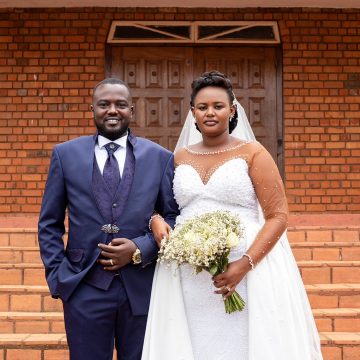This morning we woke up to an interesting post by Desire Lavigne Karakire on her Facebook wall.
I personally believe it’s about time we had a serious discussion about the subject that has kept many youths away from making their relations legal and binding in front of family and friends – “Bride Price“.
Almost every day we receive a question about what grooms should take to his in-laws to honour their role in grooming and bringing up his “best friend”, and truth be told, this is one of the hardest conversations we have with our clients. I think Desire has a point in her submission and we quote her verbatim:
I wrote this last year but never shared it:
In a conversation with my father shortly before my parents got on the long road back to Rukungiri this weekend, he shared with me the dilemma of a man who accepted more cows for one of his daughters and less for another. The younger girl is certain to feel undervalued by her father because he set a lower dowry—price of a bride for her.
“How many cows do you think you would get off my head, Daddy?” I inquired. He beamed with pride that pierced as a glint in his eyes. “A hundred,” he said.
“How about none?” I returned and he was stunned. In a confused way. His face darkened.
“Daddy,” I began. “It was alright in your time to measure the value of a man’s worth by his ability to fend for his family. Men had to prove their capacity to care for other men’s daughters, and in our cultures, cows were the economic standard.” He listened.
“It was four decades ago when you married Mum and paid a monetary price on her head. These years later, your daughters, and women in general, are more equipped to fend financially for themselves.” He listened.
“If you measure the value of my future husband by his ability to provide for me the things I already easily and eagerly provide for myself, such as food, clothing, shelter, medical care, education—for me and my children, you will have shortchanged me.” He listened.
The challenge for the men of our times cannot continue to be cows. If it’s cows you need, your daughters can provide them for you.” He listened.
“Hold my future husband to higher standards than economic capacity. Challenge him to love me with generosity. With care, love and consideration. Ask him to be an emotional anchor for me. To be a partner in my and his endeavours. To do life with me with respect, and consent.” He listened.
“You don’t want a man who can fend for your daughter, Daddy. You want a man who will love and honour your daughter.” He listened.
“And so, to my future husband, Daddy, you will say this: My daughter is a Princess whose value cannot be quantified materially. There isn’t a number of cows that you and your family could give me off her head that could ever feel like they don’t insult us. So take her. Take care of her. Honour her. And if you fall short and abuse her, she will come back home to us. She has a loving home to come back to.”
Harmful cultural practices do not end on their own. Difficult conversations must be had and cases must be made well and insisted upon. As my father settled into the car on his way out that my brother was driving, I made one final push:
“Daddy, I need you to go now and begin to make the mental shift that you will get no cows off my head. I need you to take the time and make yourself okay with this. If you insist on cows, you will lose a daughter. Decide for yourself which one you want more.”
These cycles need to break sometime. Someone has to begin them. One family, one empowered daughter, one woman who knows there is no material value that could match or rival her own. Not today, not ever.
Daughters must stand up to their fathers and remind them of their true value. Sons must refuse to buy brides because the women they choose are worth more than money. Sisters must provide the resolve and support for one another as the difficult conversations happen.
Mothers must stop to stay quiet when their daughters speak. Mothers must provide the historical examples from their own lived experiences to teach daughters and sons the detriment that becomes when you were exchanged like a common market commodity—as if you were just a mug on a shop shelf.


























